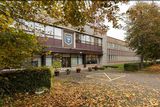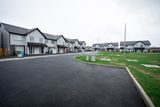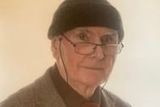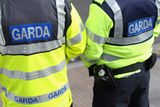Obituary: Dr Cyril Daly
GP who tirelessly campaigned against corporal punishment in our schools
Cyril Daly
Dr Cyril Daly campaigned relentlessly and mostly alone for 15 years, from 1967 to 1982, for the absolute abolition of corporal punishment in Irish schools.
It is difficult now to comprehend how divisive an issue it was and the powerful establishment forces ranged against what is now regarded as totally unacceptable.
Even Dr Garret FitzGerald, architect of the 'liberal agenda', found it difficult to deal with, and when presented with a petition by Dr Daly with multiple-choice queries on slapping children opted for "phased out" rather than countenance an immediate ban on a practice widespread in Irish schools.
Not only was a ban opposed by many influential politicians, the Church and religious orders but vociferous in their opposition were teachers' unions, particularly the Irish National Teachers Organisation.
Dr Daly also campaigned against punishment meted out to boys in industrial schools and he complained to the then Papal Nuncio Dr Gaetano Alibrandi about the psycho-sexual nature of such punishment among orders like the Christian Brothers.
Cyril Daly was born in Drimoleague, Co Cork in 1933 but grew up in Fairview, Dublin, studying at Colaiste Mhuire in Parnell Square before going to UCD to study medicine. He later opened up a successful general medical practice at Howth Road in Killester.
He related how in 1967 one of his sons came home from the local school St Paul's and told him he had witnessed another boy being 'strapped', or beaten with specially-made leather straps which were used by the clergy and their lay teachers, to administer punishment for any particular reason, or in some cases, none at all.
His son Toddy described it as a "light bulb" moment. When his father rang St Paul's to say he didn't wish his children to attend a school where such punishment was administered he was curtly told that if he didn't like it he could take them elsewhere for their education.
This he promptly did, driving them each day to Sandford National School, a small Protestant school in Ranelagh on the south side each morning, before returning to his surgery for his day's work. Indeed two of his sons were kept at home for a year as they awaited a place in the school - and they believe their father secretly wished the school inspectors would prosecute him so that he could highlight his campaign to a wider audience.
That same year (1967) he wrote what the columnist John Waters later described as a "chillingly realised tableau" in the Sunday Independent describing a 13-stone teacher using the 'leather' on a five stone boy and telling him to "take it like man." It was an all-too-familiar scene for many schoolboys, particularly those attending schools in those decades of the, 50s, 60s and 70s.
Daly used the media, particularly campaigns in the Sunday Independent, to highlight his revulsion of corporal punishment and his belief that it was barbaric for priests, members of religious orders and lay teachers to use such methods as the 'leather' and the cane to enforce discipline among schoolchildren.
An organisation called Reform was also campaigning against corporal punishment, but Dr Daly was not a member and maintained his own single-minded position, petitioning politicians and appearing on the Late Late Show in heated debates on the issue.
Frank Crummy, who was also a panel member on a memorably divisive programme on corporal punishment over 40 years ago, said recently that when he raised the issue of "Irish Christian Brothers abusing our children", Dr Daly was the only member of the panel to support him and he was physically threatened later by a member of the audience.
Dr Daly maintained that "the Irish child is a human being with human rights."
When he called Brian Lenihan Senior, then Minister for Education, out of the Dail to present him with a book of 8,000 signatures against corporal punishment in the late 1980s Mr Lenihan replied, as if genuinely confused, "what do you expect me to do with that?" He also wrote an open letter to the Archbishop of Dublin saying: "Violent men use violence in the Catholic classroom and say this is the way of Christ. And I say it is blasphemy."
Corporal punishment in schools was finally banned by the late Fine Gael Minister for Education, Mr John Boland in 1982.
Dr Daly also campaigned against the industrial school regime farmed out to the religious orders by successive Irish governments and one of his articles in the Sunday Independent was headed 'The Irish Archipelago' in what turned out to be, as we have since learned, an apt comparison with Solzhenitsyn's 'The Gulag Archipelago' about the Russian labour camps in Siberia.
What set Dr Cyril Daly apart however was that he was a devout Catholic who did not believe in abortion or divorce and members of his family feel that his opposition to corporal punishment and abuse in schools was later 'written out' of the historical record because he was not liberal enough on other issue for many media commentators.
As well as his campaign and his busy GP practice, Cyril Daly also wrote short stories and plays, one of which, A Matter of Practice, was performed in the Abbey in 1964, starring Vincent Dowling.
His last piece of journalism, after the Ryan Report which catalogued the systematic and widespread sexual and physical abuse practised by the Irish Catholic church over several decades, was published in the Sunday Independent in 2009 after the Irish Times declined to print it as a Letter to the Editor.
Dr Cyril Daly, who died peacefully at home on Wednesday at the age of 82 retired from his medical practice in April. He is survived by his wife Aileen and children Niall, Rory, Toddy, Conal, Helen and Sally.
Join the Irish Independent WhatsApp channel
Stay up to date with all the latest news














